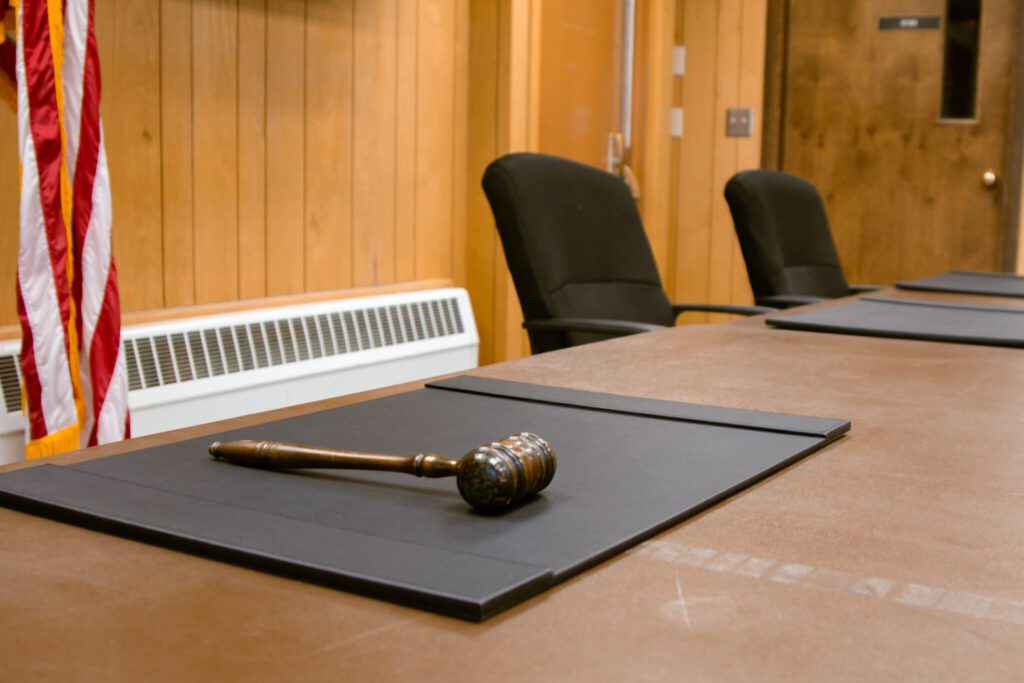As the Nome City Council readies new noise, firearm, and marijuana ordinances for public consumption, they’re also preparing to interview two candidates for the city manager job later this week.
Monday night’s council meeting started with public hearings on the noise and firearm ordinance—the latter allowing the use of a gun within city limits for subsistence or licensed sport hunting—before moving to a lengthy review of the proposed marijuana ordinances, the near-final fruit of labors going back to January. The new rules for legal use and, in the future, sale of marijuana include a provision setting the city council as the “local regulatory authority” for legal pot sales in Nome, an oversight group necessary for the city to take on permitting, and collection of fees, for local marijuana retail licenses.

Council member Jerald Brown said he wants to see more than just the council make the rules when it comes to pot shops in Nome.
“My preference would be to break [the authority] up,” Brown said, “and have more than city council on it, and then have that body recommend the next steps.”
Before voting on the draft ordinance, which moves the proposal to a first hearing and public discussion before ultimately a vote, the council agreed that establishing a local authority as quickly as possible would be key; expanding it to include other members of the community beyond the council could come later. The council will stay at the helm, at least for now.
But what of the proposed 10-mile radius of jurisdiction around Nome when it comes to legal marijuana sales? Council member Matt Culley posed the question to city attorney Brooks Chandler on the phone:
“Taxation without representation, you know fist pump in the air thing,” Culley asked. “It makes sense, I mean if they can’t be part of the vote but they get regulated upon by our actions.”
“The extension of city regulations within 10 miles of boundaries is a state proposed regulation. It’s been established under a law that was passed by the state legislature,” the attorney responded, noting that residents outside city limits fall under city laws any time they “interact with [Nome] ordinances.” Those non-Nome residents outside “that live outside Nome had the opportunity to vote for who their local representative at the state legislature was.”
Police Chief John Papasodora told the council passing the local marijuana laws now, even with the state’s final laws for legal pot some ways off, will help set the tone for what’s allowed—and what’s not—when legal marijuana sales eventually start happening.
“It’s a long time between now and November,” the chief said. “The reason you need to have the violations [of the proposed laws] in there right now is to give us, the community, some level of expectations of what is and is not acceptable.”
Papasodora added that the regulations being considered in Nome are based on a template that similarly-sized cities and municipalities are considering across the state in the wake of Alaska’s vote in November to decriminalize marijuana and eventually allow for a legal marijuana industry and market.
Out of the work session and into the regular meeting, the council approved one ordinance updating city rules to comply with international building codes, including amendments to family child care homes that would allow small operations of up to 12 children so long as smoke and carbon monoxide detector requirements and other safety standards are followed. A second ordinance—an agreement with the Nome Volunteer Fire Department and the National Park Service for fire fighting and search and rescue operations—also passed.
Before the meeting could end, council member Matt Culley again called out the Nome Joint Utility Board for failing to produce a new rate structure. Despite several meetings over the past two months, the utility board has not finalized new rates or other measures for the utility—after a temporary rate increase, the utility’s first in decades—sunsetted nearly a month ago.
“We still don’t have a tariff in front of us,” Culley said, “which we’ve been hearing over and over again, ‘it’s going to be in front of us.’ I want to see a tariff in front of us shortly, and if it takes a specialist to come in and do it, let’s do it. Because our utility board isn’t doing it.”
It’s not simply a matter of principle, Culley added: the results of an April audit of the utility’s finances paint an unsustainable financial picture for the utility. “NJUS, according to those financial [findings], does not make enough money to sustain its operations, let alone deferred maintenance costs. And so right now we’re just creating a big black hole that the city is sometime going to have to be responsible for.”
With city manager Josie Bahnke set to depart her job in October—to take over as head of the state’s Department of the Elections—council members debated just how the interview process should go when it comes to interviewing her replacement. After more than 40 minutes of debate, including advice from the city attorney, council members decided to have a public interview process with each candidate.
The two current applicants for the job include current city clerk Tom Moran and former acting city manager and current head of the city’s Parks and Rec department Chip Leeper. Both candidates will be grilled for the job at a public interview on Thursday at 5:30 p.m. in city council chambers. The public is encouraged to attend.
Editor’s note: A version of this story aired on KNOM naming city finance director Julie Liew as a third applicant for the city manager position. Liew has since withdrawn her application.







